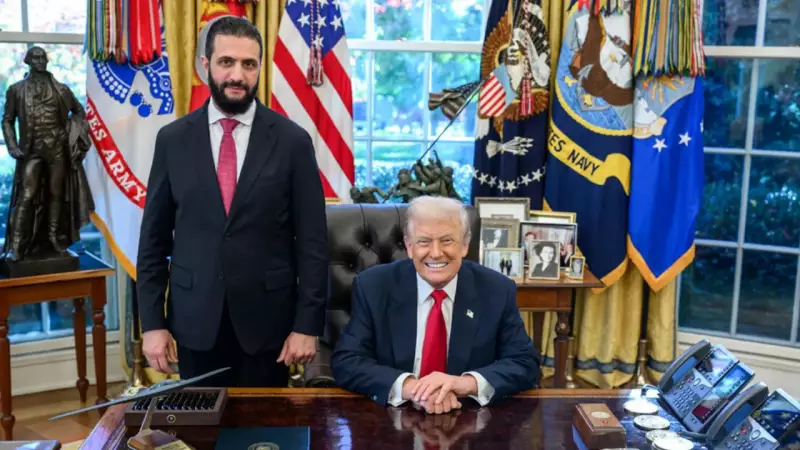
In a dramatic political development that has stunned observers across the spectrum, US President Donald Trump welcomed Syrian President Ahmed al-Sharaa to the White House on Monday, triggering fierce backlash from his own supporters including prominent far-right activist Laura Loomer.
Historic Visit Sparks Political Firestorm
The meeting represents the first official visit by a Syrian head of state to Washington in nearly 80 years, since Syria's independence. However, the historic moment quickly turned controversial as details of al-Sharaa's background emerged.
Laura Loomer, a prominent MAGA commentator, unleashed her fury on social media platform X, declaring "ISIS is now in the White House." She expressed her disappointment, stating: "I voted for bombing ISIS and banning jihadists from coming into our country. Now ISIS is in the White House and I feel like America is being taken over by Muslims."
Controversial Background of Syrian Leader
The controversy stems from al-Sharaa's militant past. Ahmed al-Sharaa previously led Hay'at Tahrir al-Sham (HTS), an organization once designated as a terrorist group by the United States. American forces captured and detained him in Iraq between 2005 and 2011.
His political ascent followed the collapse of Syria's Assad regime last December, which ended nearly 14 years of devastating civil conflict. Despite this controversial background, the Trump administration now recognizes him as a crucial partner in the global fight against ISIS.
Trump's Bold Defense and Policy Shifts
President Trump offered a robust defense of his guest during their Oval Office meeting, praising al-Sharaa as the leader capable of rebuilding Syria after more than a decade of destruction. "We want to see Syria become a country that's very successful, and I think this leader can do it," Trump declared.
Addressing concerns about al-Sharaa's past, Trump added: "People said he's had a rough past. We have all had rough pasts." This remarkable statement signaled a significant shift in US foreign policy toward Syria.
The administration reinforced this new approach by announcing a temporary extension of sanctions relief under the Caesar Act, which was originally imposed on Bashar al-Assad's regime for war crimes. A senior US official revealed to PBS NewsHour that the administration supports completely repealing the act, arguing that its removal is "key to allow US business and regional states to operate in Syria."
Mixed Reactions and Divided Opinions
The White House's outreach has drawn sharp criticism from various quarters. Human rights organizations and members of the Syrian diaspora have expressed deep concerns about legitimizing a leader with extremist connections.
Despite these protests, al-Sharaa received a warm welcome from cheering supporters outside the White House, who celebrated what they described as a "new chapter" for Syria. The contrasting reactions highlight the deep divisions surrounding this unexpected diplomatic move.
This development marks a significant departure from traditional US policy in the Middle East and raises important questions about America's future approach to counter-terrorism partnerships and diplomatic engagements with former adversaries.





